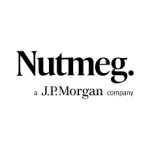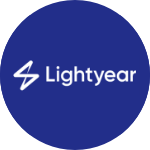Best Trading Platform For Beginners UK
New to buying & trading shares?… A share trading platform is a great way to do this!
We show you…
How to buy shares using a trading platform
Our view: The next generation of online trading platform apps means you can get setup & buy shares in as little as 10 minutes!
- Select a share platform
- Open your share account – To do this you will need your bank details and national insurance number
- Fund your account – You will need to fund your a/c with a debit or credit card or bank transfer
- Search for the share using the stock code – Type in the stock code e.g. for Apple the stock code is AAPL into the search box
- Check out the latest info and price for the share you want to buy – Some platforms offer free research and analysis
- Buy shares – Nice and easy!
Share Trading Apps Comparison
| Trading Platforms: | Features:* | Go To Site: |
 | DEGIRO are one of largest and cheapest brokers in Europe. Access to over 50 markets in 30 countries. Low commissions/fees. User-friendly, simple platform. Investing involves risk of loss. | See Deal » |
 | Interactive Investor are the UK's #1 flat fee platform. Over 350,000 customers. Capital at risk. | See Deal » |
 | AJ Bell offers overseas trading in 24 international markets. Capital at risk. | See Deal » |
 | IG Trade & invest with the world's leading online trading provider.** Trade over 17,000 markets with spread bets and CFDs and invest in thousands of global shares & ETFs. Spread bets and CFDs are complex instruments and come with a high risk of losing money rapidly due to leverage. 70% of retail investor accounts lose money when trading spread bets and CFDs with this provider. You should consider whether you understand how spread bets and CFDs work, and whether you can afford to take the high risk of losing your money. Capital at risk. | See Deal » |
 | SAXO Access over 30,000+ stocks across 60+ exchanges worldwide. Ultra competitive pricing. Benefit from extensive charting with 50+ technical indicators, integrated Trade Signals and innovative risk management tools. Investing involves risk of loss. | See Deal » |
 | Hargreaves Lansdown The UK's #1 broker. Price improvement service helps you get the best price for your shares. Capital at risk. | See Deal » |
*Please note that additional fees may be applied by platform/App providers for their services. ** No 1 For CFDs and spread betting, based on revenue excluding FX (published financial statements, October 2021).
Why use a trading platform to buy or trade shares?
If you are a new trader you don’t have to buy shares using a trading platform.
You could go down the old-school route using a stock broker directly to buy for you.
This can involve lots of paperwork and waiting for the postman to send you paper statements, which may be perfectly adequate for some people.
Your preference may be to deal with a real person over the phone to make things happen – whilst this can work, it can be slow, cumbersome, and potentially more expensive.
The good news is that with advances in technology, investors now have a significant choice when buying shares abroad.
Benefits of using a trading platform include:
- Lower trading costs
- Easy access to the UK and global share market
- 24/7 access to your investments
- You can hold all your tax-efficient investments such as ISAs and SIPPs in one place: including lifetime ISAs, right to buy ISAs and junior ISAs
- Plus any other fund holdings or shares that you’re trading outside of a tax-free environment from a general trading account
How do you pick a trading platform?
Trading platform services offered vary widely, and so do the costs.
5 things to think about:
1. Do you just want to invest or trade shares?
There are 2 ways to buy and sell stocks online.
You can invest in stocks directly via a share dealing service or you can speculate on share prices using leveraged trading products.
a. Investing in shares
Share dealing services enables you to invest in company shares with a view to selling them for a profit at a later date. When you buy shares you become a part owner of that Company and gain shareholder rights, including any income that is paid as dividends.
Different share-dealing services have different charging structures. Some platforms offer commission-free share dealing, but most operate on a fixed fee per trade, with usually a reduction in this fee if you carry out more than a certain number of trades per month.
With profits you make on share trading capital gains and dividends earned may be subject to tax at your personal rate. Tax can be mitigated if you trade within an ISA or Self Invested Personal Pension account.
b. Shares Trading
With derivatives trading you can use products such as CFDs and spread bets to speculate on a share’s price increasing or decreasing without having to take direct ownership of the shares themselves.
CFDs (Contracts For Difference) and spread betting are leveraged products, which means you can gain full exposure to company shares while only putting down a small deposit. While this magnifies possible profits, it does the same for losses.
CFDs & spread bets are popular among short term traders as profits and losses are realised immediately – making it faster to open and close trades. However, this doesn’t mean you can’t use them for longer-term positions too. You’d just need to consider the costs involved in maintaining a position – such as overnight funding – and the bet duration as spread bets do have fixed terms.
They also enable you to buy and sell shares online without ever owning the underlying asset. This has tax benefits and means you can trade both rising and falling markets (Tax laws are subject to change).
2. Do you want to do a lot of trading?
Active investors will want to look for a platform that offers the lowest fees for volume trades.
If you are going to trade stock regularly, most share trading platforms will offer lower trading prices based on volume.
3. Types of trading account
Some trading platforms offer as well as general trading accounts, ISA accounts and Self-Invested Personal Pension Accounts, which offer tax free trading benefits (no tax on dividends or capital gains tax on realised profit).
Trader accounts which offer ISA and SIPP accounts include Interactive Investor, AJ Bell, Hargreaves Lansdown and IG
4. Do you want to trade just in shares, funds, or shares & funds?
If you are also interested in investing or trading in funds then this again may determine who you go with.
If you are interested in ETFs, Investment Trusts, Open Ended Investment Companies (OEICs) or Unit Trusts, then you must check with the platform provider what is available. E.g. Some platforms only offer a limited number of collectives such as OEICs.
Charging structured for funds held on the platform will vary. Over time the impact of such charges can be significant. Check the platform charging structure carefully.
5. How easy to use is this trading platform for beginners: what kind of tools and customer service does it offer?
How easy is the platform to use to buy and sell shares for new traders/investors?
Platform functionality is becoming the key battleground in persuading traders which platform to go for. Mobile app features are also key in offering traders alerts and buy/sell signals whilst on the move.
These are often the criteria that count most highly with users, so do some research and read the reviews.
Many investors are prepared to pay a bit more in fees for a platform that offers really useful apps and services.
IMPORTANT:
No news, feature article or comment should be seen as a personal recommendation to invest. Prior to making any decision to invest, you should ensure that you are familiar with the risks associated with a particular plan. If you are at all unsure of the suitability of a particular product, both in respect of its objectives and its risk profile, you should seek independent financial advice.
The value of shares, ETFs and ETCs bought through a share dealing account, a stocks and shares ISA or a SIPP can fall as well as rise, which could mean getting back less than you originally put in. Past performance is no guarantee of future results.
Spread bets and CFDs are complex instruments and come with a high risk of losing money rapidly due to leverage. Between 67%-76% of retail investor accounts lose money when trading CFDs. You should consider whether you understand how spread bets and CFDs work and whether you can afford to take the high risk of losing your money. Professional clients can lose more than they deposit. All trading involves risk.
Tax treatment of ISAs depends on your individual circumstances and is based on current law, which may be subject to change in the future. ISA transfer charges may apply; please check with your provider.
Tags





